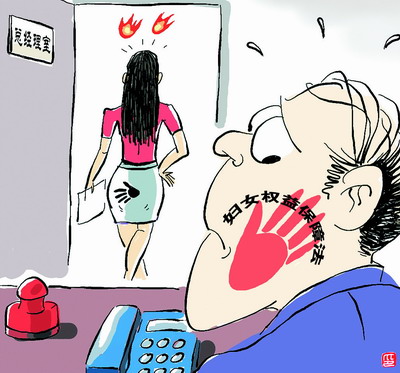If they claim they were harassed, they are less likely to be believed.
The authors claim that in Western societies, stereotypical women tend to be perceived as attractive, thin, relatively young and dressing in a feminine way. Stereotypically feminine hobbies include shopping, yoga or watching romantic movies, rather than stereotypically masculine hobbies such as fishing, contact sports or watching violent action movies.

To test how that concept of a typical woman impacted participants' view of sexual harassment, five of the experiments had participants read scenarios in which women either did or did not experience sexual harassment. Participants then assessed the extent to which these women fit with the idealized image of women, either by drawing what they thought the woman might look like or selecting from a series of photos. Across all the experiments, participants perceived the targets of sexual harassment as more stereotypical than those who did not experience harassment.
In the next four experiments, participants were shown ambiguous sexual harassment scenarios, such as a boss inquiring about a woman's dating life. These scenarios were paired with descriptions or photos of women who were either stereotypical or not. The participants then rated the likelihood that the incident constituted sexual harassment.
"We found that participants were less likely to label these ambiguous scenarios as sexual harassment when the targets were non-stereotypical women compared with stereotypical women, despite the fact that both stereotypical and non-stereotypical targets experienced the same incident," said Jin Goh, PhD, of Colby College co-author of the study.
The final two experiments found that sexual harassment claims were viewed as less credible and the harassment less likely to be recognized as psychologically harmful when the accuser adhered less to the female stereotype, even though the claims were identical.





Comments